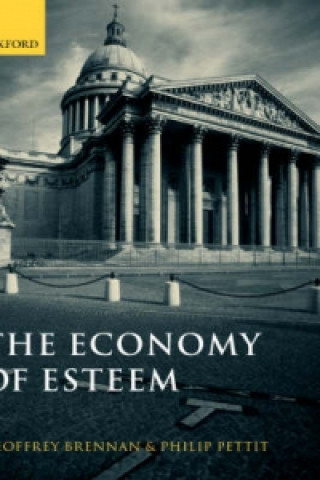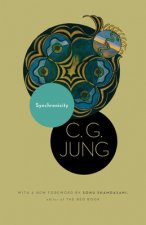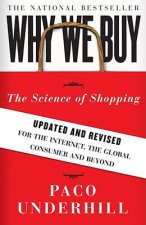
Kód: 04530135
Economy of Esteem
Autor Geoffrey Brennan, Philip Pettit
However much people want esteem, it is an untradable commodity: there is no way that I can buy the good opinion of another or sell to others my good opinion of them. But though it is a non-tradable good, esteem is allocated in soc ... celý popis
- Jazyk:
 Angličtina
Angličtina - Vazba: Pevná
- Počet stran: 352
Nakladatelství: Oxford University Press, 2004
- Více informací o knize

Mohlo by se vám také líbit
-

Quantum Mind and Healing
538 Kč -

Korn
676 Kč -

Strategic Shape of the World
490 Kč
Darujte tuto knihu ještě dnes
- Objednejte knihu a zvolte Zaslat jako dárek.
- Obratem obdržíte darovací poukaz na knihu, který můžete ihned předat obdarovanému.
- Knihu zašleme na adresu obdarovaného, o nic se nestaráte.
Více informací o knize Economy of Esteem
Nákupem získáte 184 bodů
 Anotace knihy
Anotace knihy
However much people want esteem, it is an untradable commodity: there is no way that I can buy the good opinion of another or sell to others my good opinion of them. But though it is a non-tradable good, esteem is allocated in society according to systematic determinants; people's performance, publicity, and presentation relative to others will help to fix how much esteem they enjoy and how much disesteem they avoid. The fact that it is subject to such determinants means in turn that rational individuals are bound to compete with one another, however tacitly, in the attempt to control those influences, increasing their chances of winning esteem and avoiding disesteem. And the fact that they all compete for esteem in this way shapes the environment in which they each pursue the good, setting relevant comparators and benchmarks, and determining the cost that a person must bear - the price that they must pay - for obtaining a given level of esteem in any domain of activity. Hidden in the multifarious interactions and exchanges of social life, then, there is a quiet force at work - a force as silent and powerful as gravity - which moulds the basic form of people's relationships and associations. This force was more or less routinely invoked in the writings of classical theorists like Aristotle and Plato, Locke and Montesquieu, Mandeville and Hume and Madison. Sometimes it was invoked to explain why people behaved as they did, sometimes to identify initiatives whereby they might be persuaded to behave better. Although Adam Smith himself gave it great credence, however, the rise of economics proper coincided with a sudden decline in the attention devoted to the economy of esteem. What had been a topic of compelling interest for earlier authors fell into relative neglect throughout the nineteenth and twentieth centuries. This book is designed to reverse the trend. It begins by outlining the psychology of esteem and the way the working of that psychology can give rise to an economy. It then shows how a variety of social patterns that are otherwise anomalous come to make a lot of sense within an economics of esteem. And it looks, finally, at the ways in which the economy of esteem may be reshaped so as to make for an improvement - by reference to received criteria - in overall social outcomes. While making connections with older patterns of social theorising, it offers a novel orientation for contemporary thought about how society works and how it may be made to work. It puts the economy of esteem firmly on the agenda of economic and social science and of moral and political theory.
 Parametry knihy
Parametry knihy
Zařazení knihy Knihy v angličtině Society & social sciences Psychology Psychological theory & schools of thought
1843 Kč
- Plný název: Economy of Esteem
- Podnázev: An Essay on Civil and Political Society
- Autor: Geoffrey Brennan, Philip Pettit
- Jazyk:
 Angličtina
Angličtina - Vazba: Pevná
- Počet stran: 352
- EAN: 9780199246489
- ISBN: 0199246483
- ID: 04530135
- Nakladatelství: Oxford University Press
- Hmotnost: 654 g
- Rozměry: 243 × 166 × 26 mm
- Datum vydání: 18. March 2004
Oblíbené z jiného soudku
-

The Empathy Game
607 Kč -

Red Book
6053 Kč -

A General Introduction to Psychoanalysis
130 Kč -

Inner Gold
524 Kč -

Ego and the Id
94 Kč -

Man's Search for Meaning, Gift Edition
570 Kč -

Secret World of Drawings
517 Kč -

Psychoanalytic Diagnosis
1213 Kč -

Situation Is Hopeless But Not Serious
402 Kč -

Analysis, Repair and Individuation
1889 Kč -

Dark Side of the Inner Child
585 Kč -

Archetypal Process
1031 Kč -

Ape that Understood the Universe
637 Kč -

Between Losing and Finding
840 Kč -

Four Archetypes
574 Kč -

Threshold Experiences
970 Kč -

Social Psychology: A Very Short Introduction
282 Kč -

Behave
334 Kč -

The Red Book – A Reader`s Edition
948 Kč -

Emotional Intelligence
260 Kč -

Synchronicity – An Acausal Connecting Principle
314 Kč -

The Sublime Object of Ideology
457 Kč -

Memories, Dreams, Reflections
324 Kč -

Make It Stick
826 Kč -

Civilization and Its Discontents
250 Kč -

Choice Factory
410 Kč -

No Boundary
379 Kč -

Problem of the Puer Aeternus
632 Kč -

Answer to Job
223 Kč -

Carl Jung: Wounded Healer of the Soul
678 Kč -

Psychoanalyst Meets Marina Abramovic
481 Kč -

The Interpretation of Dreams
146 Kč -

Dreams
554 Kč -

Ego and Archetype
853 Kč -

Great Mother
688 Kč -

How To Read Lacan
303 Kč -

Integral Psychology
603 Kč -

Archetypes and the Collective Unconscious
1495 Kč -

Freud and Beyond
597 Kč -

Home is Where We Start from
357 Kč -

Jung's Studies in Astrology
1300 Kč -

Projection and Re-collection in Jungian Psychology
779 Kč -

Dreams
482 Kč -

Beyond the Pleasure Principle
357 Kč -

Red Book of C.G. Jung
998 Kč -

Quantum Mind
792 Kč -

Ecrits
761 Kč -

Civilization and its Discontents
185 Kč -

Why We Buy
393 Kč
Osobní odběr Praha, Brno a 12903 dalších
Copyright ©2008-24 nejlevnejsi-knihy.cz Všechna práva vyhrazenaSoukromíCookies



 Vrácení do měsíce
Vrácení do měsíce 571 999 099 (8-15.30h)
571 999 099 (8-15.30h)